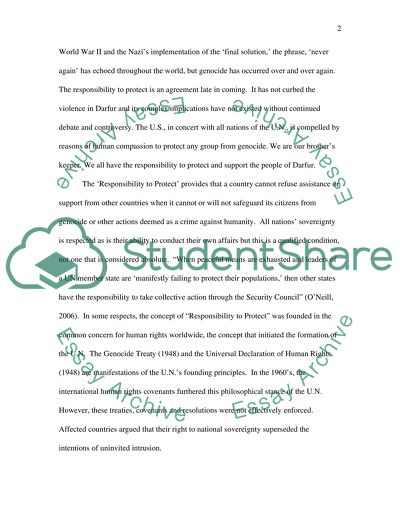Cite this document
(“Responsibility to Protect Case Study Example | Topics and Well Written Essays - 2000 words”, n.d.)
Retrieved from https://studentshare.org/history/1522913-responsibility-to-protect
Retrieved from https://studentshare.org/history/1522913-responsibility-to-protect
(Responsibility to Protect Case Study Example | Topics and Well Written Essays - 2000 Words)
https://studentshare.org/history/1522913-responsibility-to-protect.
https://studentshare.org/history/1522913-responsibility-to-protect.
“Responsibility to Protect Case Study Example | Topics and Well Written Essays - 2000 Words”, n.d. https://studentshare.org/history/1522913-responsibility-to-protect.


